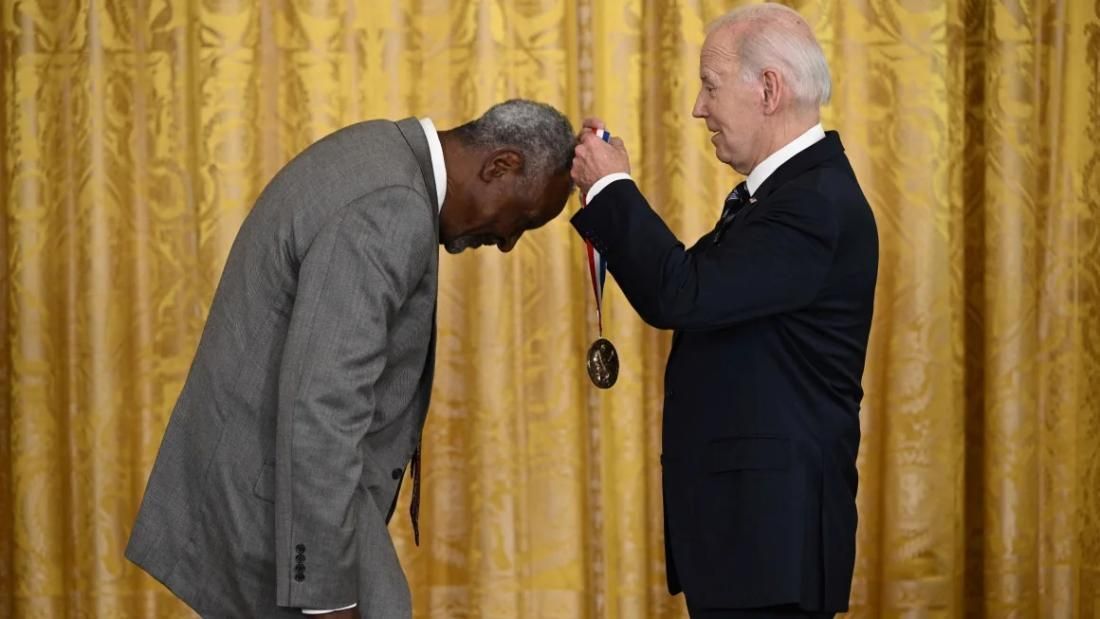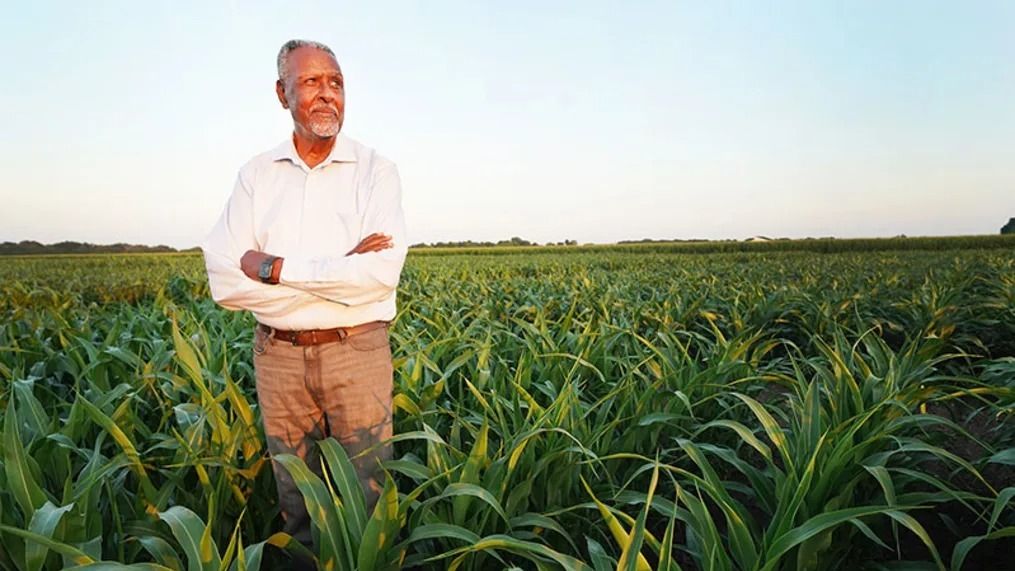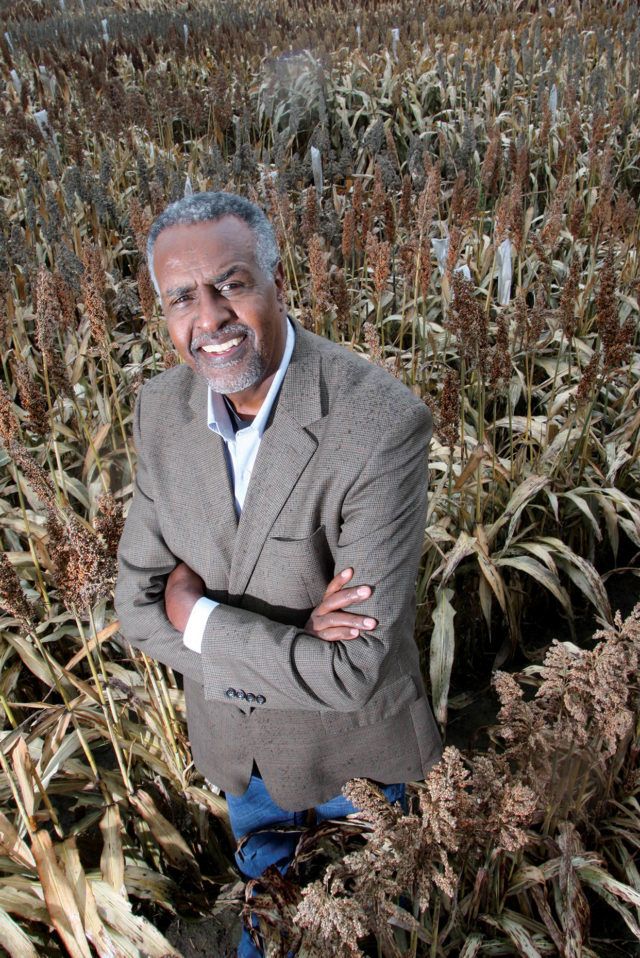On October 24 2023, former President Biden awarded the National Medal of Science and the National Medal of Technology and Innovation, the nation’s highest scientific honor, to a few distinguished scientists who have made exemplary achievements in science, technology, one of which is the Ethiopian American plant geneticist professor Gebisa Ejeta. “By developing sorghum strains that withstand droughts and parasites, he has improved food security for millions,” President Biden said as he awarded Ejeta his medal at the ceremony. Adding, “His advocacy for science, policy, and institutions as key to economic development has lifted the fortunes of farmers and strengthened the souls of nations.”

Scientist Gebisa Ejeta, born and raised in Ethiopia, receives his National Medal of Science from US President Joe Biden during a ceremony at the White House on October 24, 2023. source: Brendan Smialowski
Gebisa Ejeta was born and raised in a small rural community in west-central Ethiopia. He completed his early education in his native country including a BS in Plant Sciences from Alemaya College in 1973. He attended graduate school at Purdue University earning his Masters (1976) and PhD (1978) in Plant Breeding & Genetics. In March 1979, Gebisa joined the International Crop Research Institute for the Semi-arid Tropics (ICRISAT) and conducted seminal sorghum research in Sudan for five years.
Professor Ejeta has served on numerous science and program review panels, technical committees, and advisory boards of major research and development organizations including the international agricultural research centers (IARCs), the Rockefeller Foundation, the Food and Agricultural Organization (FAO) of the United Nations, and a number of national and regional organizations in Africa.
Professor Ejeta has had the honor of serving at the highest level of science and policy advisory for several international development and U.S. government agencies, including as Special Advisor to the USAID Administrator Dr. Rajiv Shah, as Science Envoy of the U.S. State Department, and as a member of the UN Secretary General Ban Ki Moon’s Scientific Advisory Board. A 2009 World Food Prize Laureate and recipient of a national medal of honor from the President of Ethiopia, Professor Ejeta is a Fellow of the American Association for the Advancement of Sciences, Fellow of the American Society of Agronomy, Fellow of the Crop Science Society of America, and Fellow of the African Academy of Sciences.
“Dr. Ejeta’s accomplishments in improving sorghum illustrate what can be achieved when cutting-edge technology and international cooperation in agriculture are used to uplift and empower the world’s most vulnerable people,” said Dr. Norman E. Borlaug, founder of The World Food Prize. “His life is as an inspiration for young scientists around the world” he added.

Gebisa Ejeta, distinguished professor of plant breeding & genetics and international agriculture at Purdue University, has dedicated his life's work to studying sorghum. source: Purdue University Agricultural Communications photo/Thomas Campbell
His research is focused on elucidating the genetic and physiological mechanisms of important traits in sorghum. Grain sorghum is the fifth most important cereal crop in the world. With its superior drought tolerance and broad adaptation, sorghum is grown worldwide, serving as a staff of life for over 500 million people in developing countries, and as the second most important feed crop in the United States.
The goal of Ejeta's sorghum research program is the development, release, and deployment of improved sorghum cultivars for both food and feed use. His sorghum research is generally characterized by its sustained commitment to translational approaches that generates products and technologies from research findings to impact farm productivity and the eventual utilization and profitability of the crop post-harvest.

Gebisa Ejeta, Executive Director. source: Purdue University Agricultural Communications photo.
His scientific breakthroughs in breeding drought-tolerant and Striga-resistant sorghum fostered economic development and the empowerment of subsistence farmers through the creation of agricultural enterprises in rural Africa. He led his colleagues in working with national and local authorities and nongovernmental agencies so that smallholder farmers and rural entrepreneurs could catalyze efforts to improve crop productivity, strengthen nutritional security, increase the value of agricultural products, and boost the profitability of agricultural enterprise – thus fostering profound impacts on lives and livelihoods on a broader scale across the African continent.
He currently holds the position of Distinguished Professor of Plant Breeding & Genetics and International Agriculture at Purdue University and serves on the boards of the Global Crop Diversity Trust, the Chicago Council for Global Affairs’ Global Food and Agriculture Program, the National Academy of Sciences Board on Agriculture and Natural Resources, the International Water Management Institute, and on the U.S. Board for International Food and Agricultural Development.
